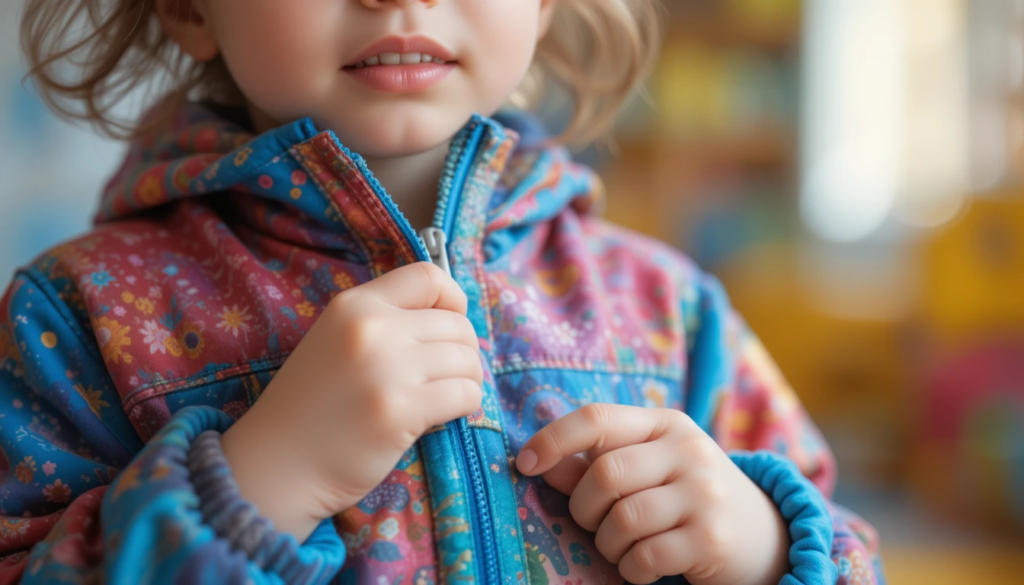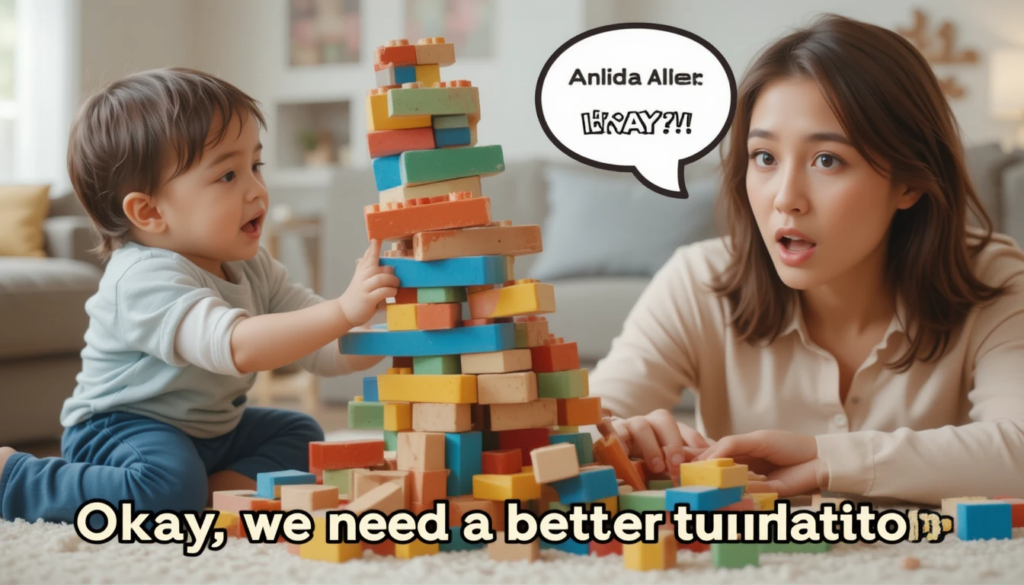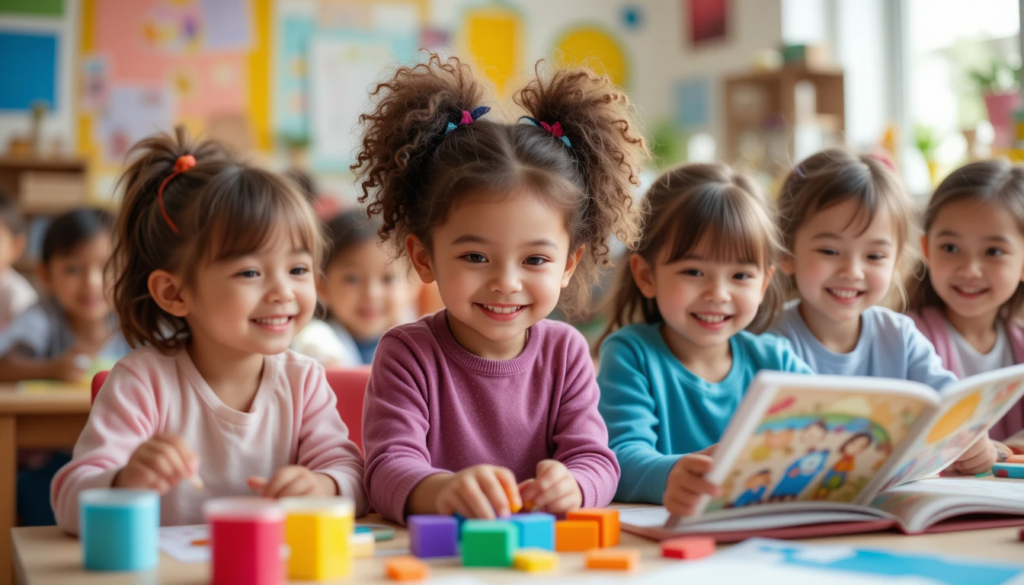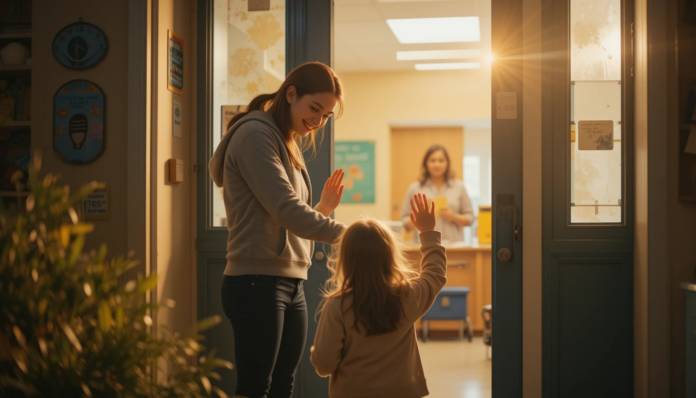Early childhood education? Yo, it flipped my parenting game when I realized how clutch it is. Here I am in my Atlanta living room, 05:27 PM IST September 2, 2025—wait, that’s India time, my bad, it’s 07:57 AM EDT September 2, 2025, with the morning sun peeking in and the faint smell of spilled milk from my toddler’s mess still lingering. Back when I started, I thought it was just playtime, but my first attempt? Kid stacked blocks, I knocked ‘em over, coffee splashed everywhere—total disaster. Like, seriously? I’d tell myself it’d be easy, then stress over their growth, contradicting my “no biggie” vibe. Early childhood education became my wake-up call, but man, I flopped hard before getting it. Hard, yo.
One time, I read a story, tripped over a toy, and the book flew—yep, kid giggled at my sprawl. The room smelled like dust and embarrassment, my knees bruised as I laughed it off. Big wake-up call. Started diving into early childhood education, but I thought it was optional—boy, was I wrong. It worked, even if I still mess up sometimes. Mess up, ugh.ation is wonky, that house is eventually gonna have problems, right? Those early years? They’re the foundation. And sometimes, we underestimate just how much goes into building a sturdy one.

Why Early Childhood Education Is a Game-Changer (Even with My Blunders)
Raising a kid’s intense, and without early childhood education, I was lost. Missed a milestone ‘cause I didn’t focus—oops. Sitting here, sun warming, faint crayon scent from my kid’s art, I can say it’s non-negotiable now. Thought I could just wing it with love—big nope. I’m better now, but real talk, I still worry about gaps. Worry, yeah, the worst.
Here’s why it’s huge, from my flops:
- Boosts brains: No more missed cues from my toddler.
- Sets foundations: Even if I mess up the routine.
- Shapes their future: Saw leaps with the right start. Start, sorta.
If you’re a parent like me, American and stressing, early childhood education is your must-do. Don’t expect to ace it—I’m still learning. Still learning, man.
How Early Childhood Education Shapes Kids (And My Epic Fails)
Here’s the deal—ways early childhood education impacts my kid, jotted from my Atlanta chaos with a creaky floor and a block pile my toddler toppled. Some I nailed, others I tanked, ‘cause I’m human, right? Linking legit sources for cred—check https://www.naeyc.org for real insights. Real stuff, yo.
Big Wins of Early Childhood Education: Where I Started (And Stumbled)
- Language Skills – Read daily, but picked a boring book—oops. Switched, kid’s chatting now. (https://www.naeyc.org/resources/)
- Social Growth – Played with friends, tripped over toys—cringe. Learned, they’re thriving. (https://www.parents.com/)
- Cognitive Boost – Tried puzzles, forgot pieces—panic. Found ‘em, big progress. (https://www.zerotothree.org/) Progress, yeah.
Deep Impacts of Early Childhood Education: My Half-Wins
- Emotional Balance – Taught feelings, zoned out mid-lesson—yikes. Got back, kid’s calmer. (https://www.pbs.org/)
- Motor Skills – Built stuff, spilled paint once—ugh. Cleaned up, skills improved. (https://www.healthychildren.org/)
- Curiosity Spark – Asked questions, misheard answers—oops. Clarified, they’re curious. (https://www.edutopia.org/) Curious, kinda.

Why Early Childhood Education Rocks: Where I Pretended I Was Pro
- Brain Development – Puzzles helped, but I lost the guide—embarrassing. Found it, kid’s sharp.
- Confidence Build – Play boosted ‘em, argued over a toy—oops. Laughed, they’re bold now.
- Long-Term Gains – Saw potential, overslept a class—ugh. Caught up, future looks good.
Floor’s creaking, blocks are scattered—ugh. This early childhood education stuff? Some clicked, others I botched like a parent rookie. No shame, just me being me. Me, the chaos dad.
Tips to Nail Early Childhood Education (Even with My Mess-Ups)
Here’s how I rolled with early childhood education, from my living room wreck. Bombed a craft day once, room smelling like glue and my stress. Start small—tried big projects, kid cried. Check sites like NAEYC for tips, even if I skimmed one. (https://www.naeyc.org) Take notes—I scribbled on receipts, lost ‘em, so embarrassing. Breaks help—I skipped ‘em, zoned out mid-story. Zoned out, yeah.
Biggest fail? Overloading. Thought I needed every skill taught, stressed out. Early childhood education needs pace, man. Also, chill vibes—coffee’s nice, but I spilled it on my kid’s drawing once, total disaster. Disaster, yo.

Wrapping Up My Rant on Early Childhood Education
Spilling this about early childhood education feels like venting over tacos with a pal—just me, creaky floor, Atlanta heat outside. This focus kept me from parenting flop, but it showed I’m a mess—spills, zones, all of it. I love the idea of raising a genius but still fumble, contradicting my own hype. It made early learning a win for a goof like me. Try it, yeah? Drop a comment with your early childhood wins or flops—I wanna hear your chaos. Or share what worked. Wait, did I say that twice? Whatever, brain’s toast. Might’ve repeated myself, or maybe I meant to. Early childhood education, it’s key, but I’m still a work in progress. Prolly forgot something. Oh well, you get it. Peace out. Out, man.
Curious about the science of early brain development? This article is fascinating: The Science of Early Childhood Development: What Parents Need to Know
And for a laugh at the glorious chaos of raising little ones: 25 Memes Only Parents of Toddlers Will Understand




